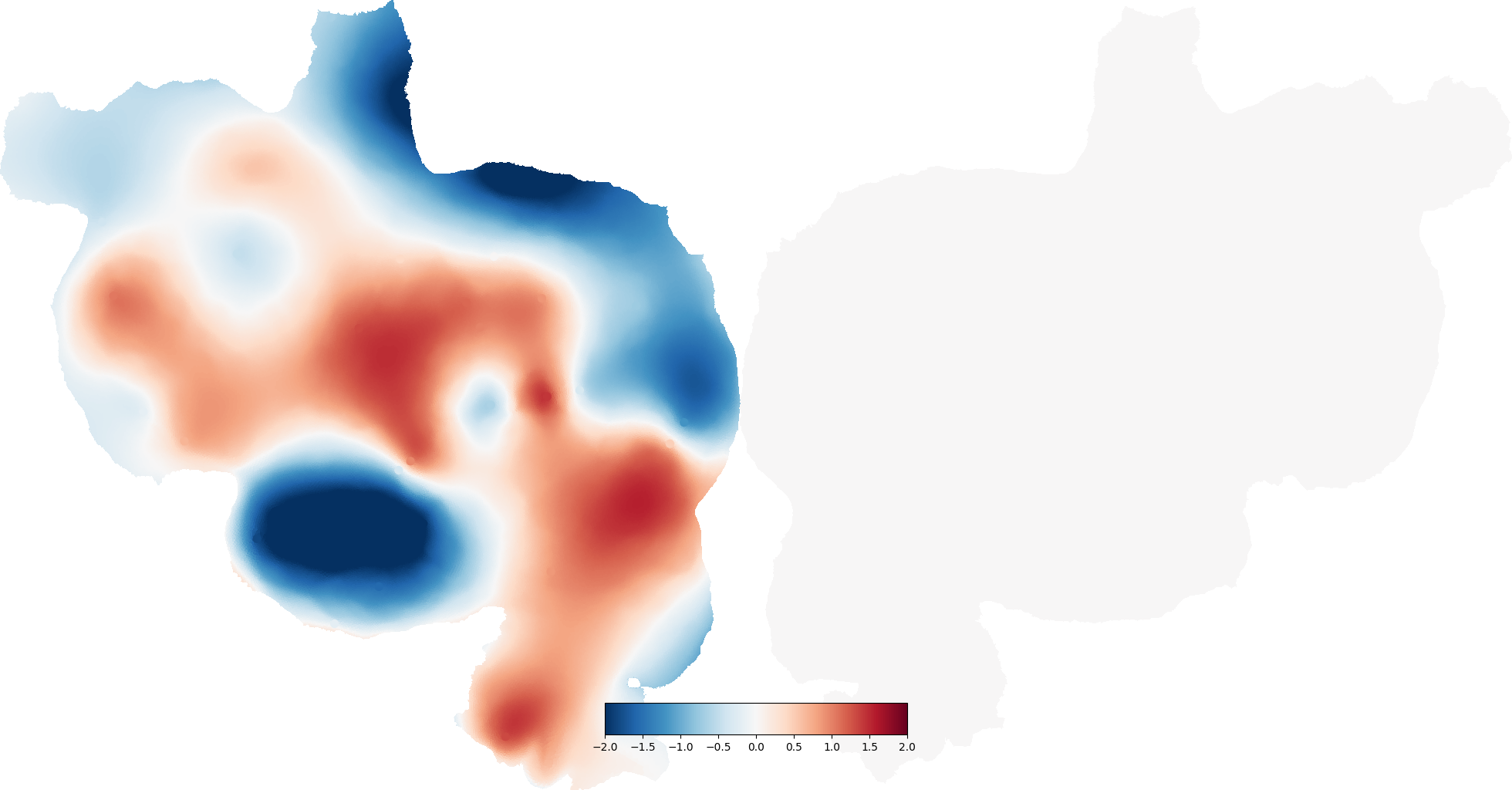Note
Go to the end to download the full example code.
Interpolate Data¶
In this example we show how to interpolate data from a sparse collection of points to all the points in the cortical surface.
The method used here is biharmonic interpolation, which finds the solution with the minimum squared Laplacian (fourth derivative) that still passes through all the selected points. This is similar to thin plate splines.

import cortex
from cortex.polyutils import Surface
import numpy as np
np.random.seed(1234)
from matplotlib import pyplot as plt
subject = "S1"
# First we need to import the surfaces for this subject
lsurf, rsurf = [Surface(*d) for d in cortex.db.get_surf(subject, "fiducial")]
# Let's choose a few points and generate data for them
selected_pts = np.arange(len(lsurf.pts), step=5000)
num_selected_pts = len(selected_pts)
sparse_data = np.random.randn(num_selected_pts)
# Then interpolate
interp_data = lsurf.interp(selected_pts, sparse_data)
# Plot the result
# interp_data is only for the left hemisphere, but the Vertex constructor
# infers that and fills the right hemisphere with zeros
interp_vertex = cortex.Vertex(interp_data[:,0], subject,
vmin=-2, vmax=2, cmap='RdBu_r')
cortex.quickshow(interp_vertex, with_labels=False, with_rois=False)
# plot the locations of the points we selected originally
# nudge=True puts both left and right hemispheres in the same space, moving them
# so that they don't overlap. These are the coordinates used in quickflat
(lflatpts, lpolys), (rflatpts, rpolys) = cortex.db.get_surf(subject, "flat",
nudge=True)
ax = plt.gca()
# zorder is set to 10 to make sure points go on top of other quickflat layers
ax.scatter(lflatpts[selected_pts,0], lflatpts[selected_pts,1], s=50,
c=sparse_data, vmin=-2, vmax=2, cmap=plt.cm.RdBu_r, zorder=10)
# the interpolate function can also handle multiple dimensions at the same time
# (this takes a while to run for no plotting, and thus is commented out)
#sparse_data_2d = np.random.randn(10, num_selected_pts)
#interp_data_2d = lsurf.interp(selected_pts, sparse_data_2d)
# > interp_data_2d.shape
# (152893, 10)
plt.show()
Total running time of the script: (0 minutes 11.893 seconds)